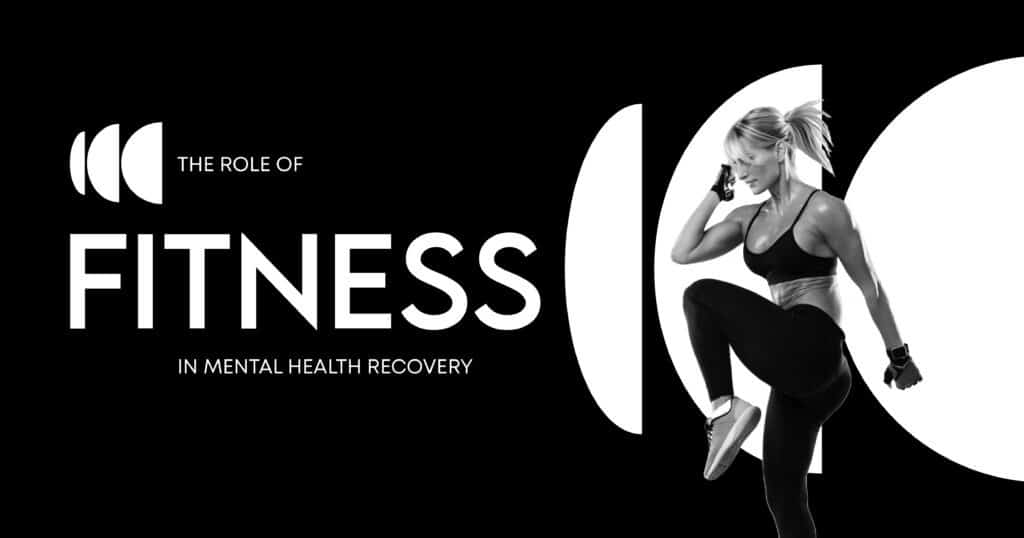Most people will associate physical fitness with maintaining weight, exercising their heart for better cardiovascular health, and building muscle strength. But there’s so much beyond the body, as a close connection has been established between fitness and mental health recovery.
Regular exercise has been proven to help improve mental health, reduce symptoms of mental illness, and promote long-term resilience, among others. This article explores the positive impact of physical activity on mental health and how it’s assisting recovery.
The Link Between Fitness and Mental Health Recovery
Physical activity profoundly affects mental health. The performance of exercise releases endorphins, dopamine, and serotonin natural mood elevators, which sometimes prove to be significantly effective in reducing symptoms of depression and anxiety. Regular fitness routines instituted provide the necessary structure and motivation to break unhealthy cycles often related to mental health challenges.
The connection between fitness and mental recovery from mental health issues is not only chemical but also practical. When people exercise, their bodies tend to set up goals in exercising, time for self-care, and getting small victories that build confidence and self-worth, which are essential for recovery.
Nashville Mental Health
How Exercise Impacts Brain Chemistry and Mood
The effects of mental wellness exercise are based on its influence on brain chemistry. This is because exercising can heighten the release of neurotransmitters like serotonin and dopamine, which play a chief role in regulating mood and emotions. It also reduces cortisol and helps a person manage stress and anxiety.
- Endorphins. They are called the natural painkillers created by the body. They inhibit pain perception and are released in response to physical activity.
- Dopamine. This is an essential neurotransmitter in reward-motivated systems that reinforces desirable behaviors.
- Serotonin. It is called the “feel-good” chemical. It helps steady and calm moods, reduces anxiety, and improves well-being.
Through those chemical reactions, exercise can become a natural antidote for such people who experience stress and depression, thus becoming a precious tool in the restoration of mental health recovery.
Types of Exercise for Mental Health Recovery
Not all exercises are the same, and different forms of physical activity can offer unique benefits to those focusing on mental health recovery. Here are some effective types of exercise to consider:
Cardiovascular Exercise
Cardiovascular activities like running, swimming, and cycling are particularly beneficial for mental wellness. These forms of exercise increase heart rate, improve blood flow to the brain, and release a rush of endorphins.
- Benefits: Cardio helps reduce anxiety, improves mood, and builds stamina.
- Examples: Walking, jogging, biking, swimming, and dancing.
Strength Training
Strength training, such as weightlifting or resistance exercises, offers more than just physical strength. It builds resilience, improves self-confidence, and fosters a sense of accomplishment.

- Benefits: Increases self-esteem, reduces symptoms of depression, and provides a structured focus.
- Examples: Free weights, resistance bands, body-weight exercises, and machine workouts.
Mind-Body Exercises (e.g., Yoga, Tai Chi)
Mind-body exercises like yoga and tai chi combine physical movement with mindfulness and breathing practices, providing mental clarity and emotional balance.
- Benefits: Enhances mindfulness, reduces stress, and improves mood.
- Examples: Yoga classes, tai chi, or stretching sessions.
Each of these exercises can be tailored to individual preferences and abilities, making fitness recovery for mental health accessible for everyone.
Benefits of Fitness on Mental Health Recovery
Athletics offers quite a few such benefits in terms of recovery from mental health issues; let’s talk about some of those benefits:
Nashville Mental Health
Improved Mood and Reduced Anxiety
Physical activity is probably the most effective way to elevate mood. During exercise, endorphins are released into the bloodstream, which can be beneficial in combating sadness or anxiety and could be immediate, eliciting a positive shift after each session.
Enhanced Cognitive Function
Fitness benefits the body and the mind. Studies have proven that exercise enhances memory and focus, which may be an important factor for persons undergoing mental recovery.
Increased Resilience and Stress Management
Regular exercise provides physical and emotional resilience. People learn how to withstand physical and mental pressures that help them build strategies to cope with stress by doing fitness.
Building a Consistent Fitness Routine in Recovery
Building a consistent fitness routine is essential for those in mental health recovery. Establishing a routine provides structure, which is key for improving mental health. Start small, choose enjoyable activities, and gradually increase the duration and intensity.
| Start Slowly | Begin with manageable activities like walking or stretching. Gradually add more intense workouts as you build strength. |
| Find What You Love | Choose activities you enjoy, whether it’s dancing, hiking, or weightlifting. This will increase your likelihood of sticking with them. |
| Celebrate Progress | Tracking improvements, no matter how small, can provide a significant mental boost and encourage continued participation. |
Consistency is crucial for realizing the benefits of fitness on mental health. The goal is to incorporate physical activity into your daily routine in a way that feels natural and sustainable.
Tips for Staying Motivated and Setting Realistic Goals
It is unwise and challenging to stay motivated on this fitness journey because of mental health recovery. Therefore, when setting goals, strive for realistic ones and break them down gradually.
- Set Achievable Goals. Small, doable tasks comprise large goals. Thus, instead of a marathon, set the goal to walk for at least 10 minutes daily.
- Find Accountability Partners. Exercising with a friend or joining a group class can add accountability and make workouts more enjoyable.
- Celebrate Small Wins. Every step forward is a success. Celebrate your success, no matter how small or small the achievements.
These strategies could make fitness an enjoyable part of your life that would support your physical and mental well-being.
Embracing Fitness as a Tool for Mental Health Recovery
Fitness is more than just an activity in one’s body; it is a wholesome tool that helps realize mental health recovery. The inclusion of physical activity in a routine becomes the individual’s way of committing to better mental health and well-being. Exercise can help manage symptoms, build resilience, and provide a feeling of control over what’s happening.
I don’t care where you are in your journey, but there’s a level of the fitness routine that works for you. Whether it is a short walk, a group fitness class, or even a home yoga session, find what brings you joy and relief. Fitness recovery for mental health is not one size that fits all; it’s finding a sustainable, enjoyable path to well-being.
Call to Action
Begin on a journey to better mental and physical health by taking small, manageable steps. Start with simple actions, like a 10-minute walk around your neighborhood or attending an entry-level yoga class. Gradually, you’ll discover how incorporating fitness into your routine can support your mental health recovery. Remember, progress begins with that first step. Even small, consistent efforts each day can make a significant difference. Embrace fitness as a powerful tool for healing and take that first step toward recovery today!
Nashville Mental Health
FAQs
- How does physical activity improve mental health?
Physical activity can enhance mental health as it releases endorphins, dopamine, and serotonin neurotransmitters. These neurotransmitters assist in elevating moods and reducing stress, as well as alleviating the symptoms of depression and anxiety. Constant exercise enhances cognitive functioning and resilience, allowing people to handle situations better in life.
- What types of exercise are best for mental health recovery?
Different exercises have mixed benefits for mental health recovery. Cardiovascular exercises such as running and cycling are highly beneficial for uplifting moods. Strength training also builds resilience and confidence, while mind-body practices include yoga and tai chi, which boost relaxation and mindfulness and help people handle stress and anxiety.
- Can exercise replace medication or therapy for mental health treatment?
While exercise alone can be an excellent support for mental health, it is not a replacement for professional treatment: fitness may also be used to augment treatments such as medications and therapy.
- How much exercise do I need to see mental health benefits?
Even small quantities of exercise can benefit mental health. At least 150 minutes of moderate aerobic activity per week, such as brisk walking, or 75 minutes of vigorous activity, like jogging, may be achieved. Although continuing this practice consistently leads to long-term benefits, slow, gradual increases in activity could prove helpful.
- How can I stay motivated to exercise regularly for mental health?
Set achievable and realistic goals; do something you enjoy, perhaps with or without a friend, and maybe keep that tight friendship with your workout buddy, track how you’ve done, and celebrate the small victories. Remember, any movement counts. Fitness maintains your wellness and your well-being in the long run.





